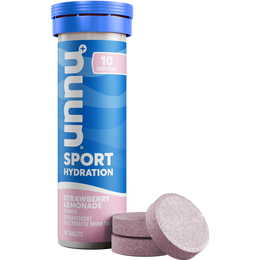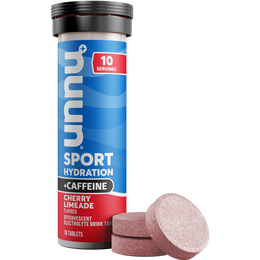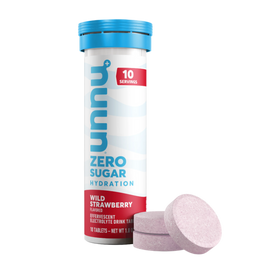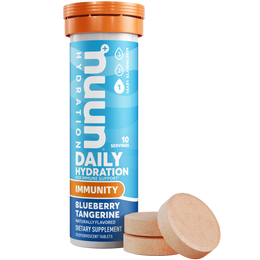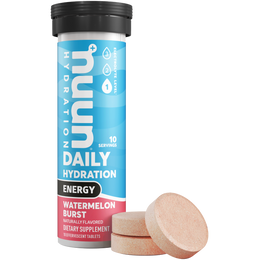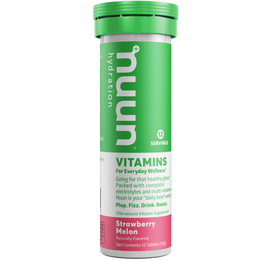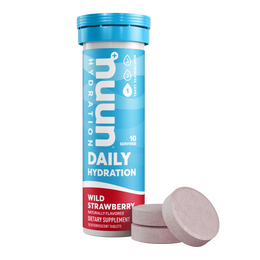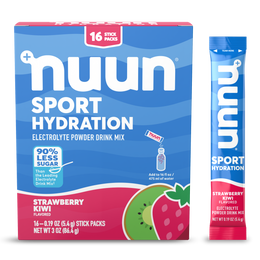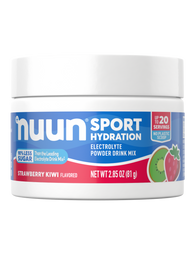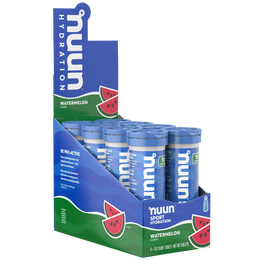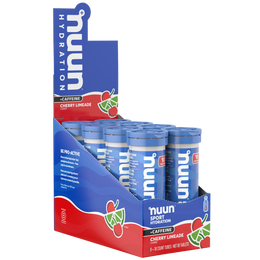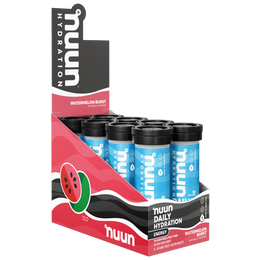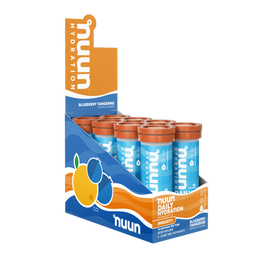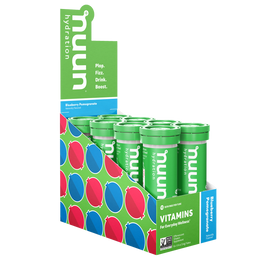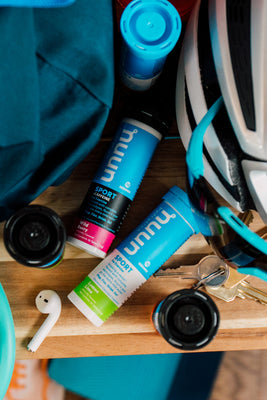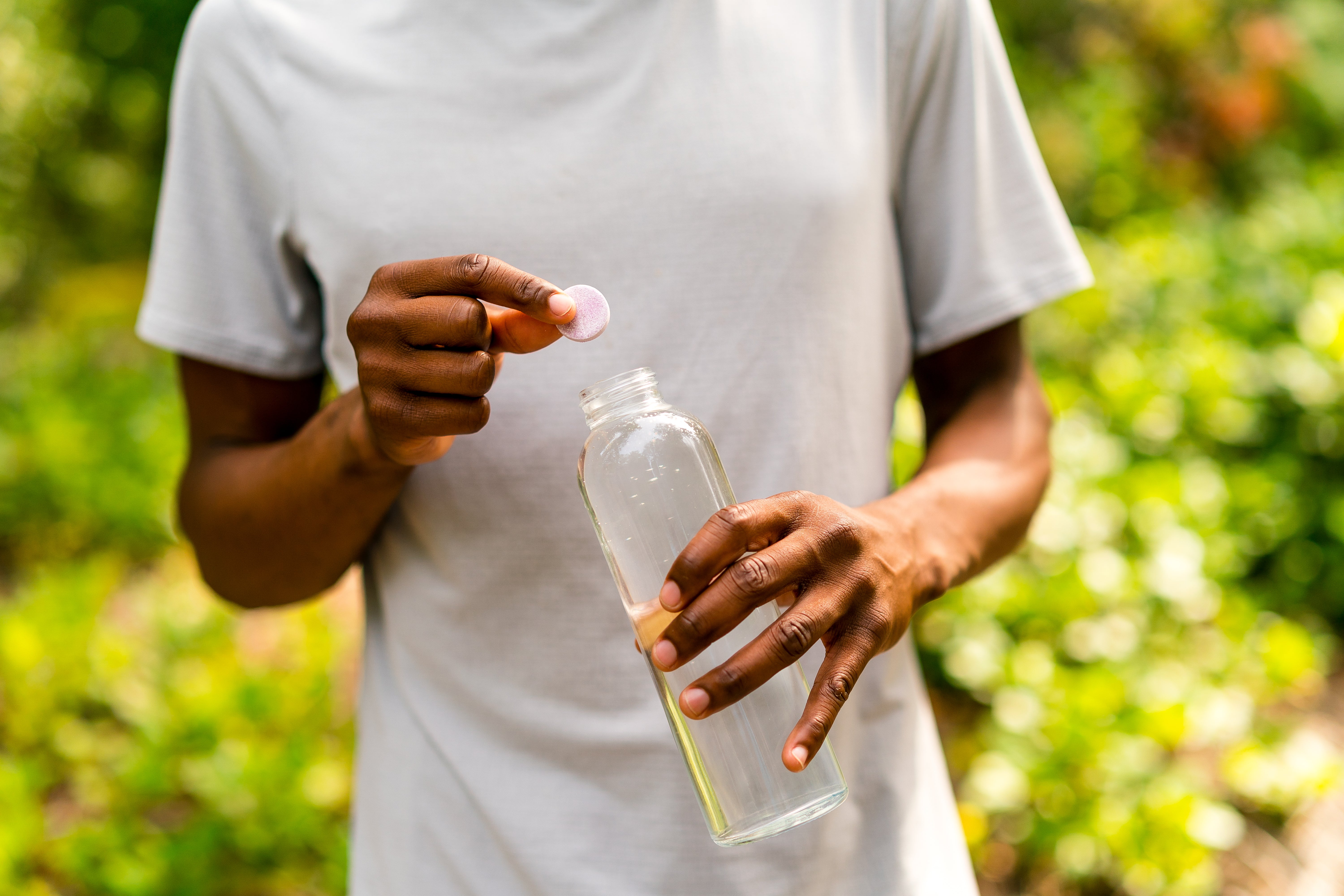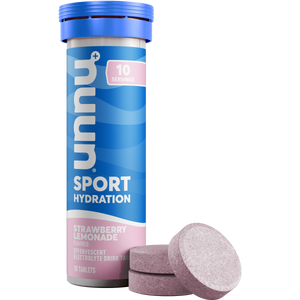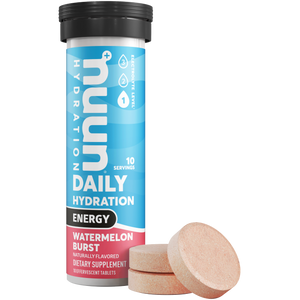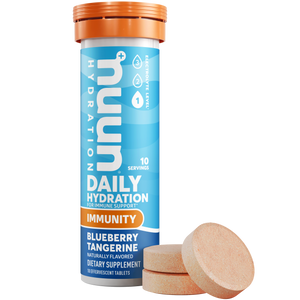While there are plenty of apps, journals, and even water bottles designed to help you make sure you’re drinking enough water each day, it’s easier to get dehydrated than you may think. Hiking at a moderate pace could lead to mild dehydration in an hour, while a hard training run could lead to the same result in just 30 minutes.
But even mild dehydration can have adverse effects on the body, including mood changes, muddled thinking, and a decrease in athletic performance. The trouble is, you may not realize you’re even mildly dehydrated until it’s too late, because you may not always — or immediately — experience the feeling of thirst.
So if you can’t rely on feeling thirsty to stay properly hydrated, what are the most common signs of dehydration? Here are a few common dehydration symptoms and what to do if you experience them.
1. You’re urinating less often, or urinating a darker color
Your kidneys’ job is to filter out waste and extra water from your body to make urine. When you’re dehydrated, your kidneys tell your body to retain water. That means you have less water in your urine, which causes it to become darker in color.
In general, the lighter the color of your urine, the more hydrated you are. Clear to pale yellow urine (like lemonade) means you’re well hydrated, while darker, more amber yellow urine (think: apple juice) could indicate dehydration.
You also may find that you don’t have to visit the restroom quite as often. There’s no magic number of bathroom visits that’s applicable to everyone, but if you normally go seven or eight times a day, and you realize it’s decreased to four or five times, you might need to up your water intake.
2. Your heart is racing
When you’re dehydrated, you lose blood volume, which causes your blood to get thicker. That makes it harder for your heart to supply that blood to your muscles. As your heart works harder to pump that blood, your heart rate increases. A racing heart may be hard to notice if you’re in the middle of a hard workout, so pay close attention — if you notice palpitations, it might be time to rest and rehydrate.
3. You feel lightheaded or dizzy
Your brain is about 73% water, so dehydration can have a significant effect on the brain. Dehydration can cause your blood pressure to drop, which can reduce oxygen flow to the brain — and ultimately, result in dizziness or lightheadedness.
Dizzy spells during exercise can be extremely dangerous, whether you’re cycling on the side of a busy road or are miles away from home on a long run.
4. You have a headache that won’t go away
In addition to feeling dizzy, you might find that your head begins to ache. Because the brain is made up mostly of water, when you lack proper hydration, the brain can shrink and pull away from the cranium — which can cause pain in the form of a headache.
And it may be worse if you’re already prone to headaches. Some headaches, including migraines, can be triggered by dehydration.
5. You feel fatigued
When you’re dehydrated, your blood pressure may drop, which can cause reduced blood flow to the brain — making you feel sleepy. According to the Natural Hydration Council, one in 10 patient consultations for tiredness and fatigue are attributed to dehydration.
For athletes, fatigue can easily lead to a poor performance; a fatigued athlete simply can’t perform at his or her peak ability.
Experiencing signs of dehydration?
If you recognize any of these dehydration symptoms, your first reaction may be to immediately chug several glasses of water — but that’s not the best way to rehydrate.
Electrolytes are critical to hydrate the body, maintain nerve and muscle function, and balance blood acidity and pressure. To maintain optimal hydration, you must consume those electrolytes — sodium, potassium, magnesium, and calcium — along with your water. Drinking Nuun Sport, for example, is a great way to consume the right ratio of electrolytes to water.
You can also achieve the right electrolyte balance by getting some of your water from fruits and vegetables. Cucumbers, for example, are 95% water, and a kiwi has as much potassium as a medium banana.
Overall, it’s important to stay ahead of your hydration. Make an effort to continuously sip away at water and electrolyte-rich drinks throughout the day, rather than once you begin to notice the signs of dehydration.
